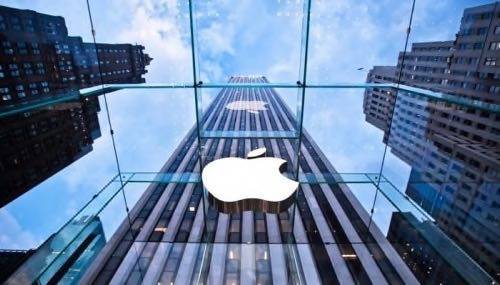
Apple became the world’s largest public company – by market value – in 2012, when its $546 billion market capitalization edged it ahead of perennial leader Exxon Mobil. At the end of trading on Wednesday, Apple’s market cap had fallen to $399 billion, just below Exxon’s $403 billion. And there are plenty of reasons to believe that Apple may never again be the world’s most valuable company. At least not for long:
- Margin pressure on Apple’s massively profitable iPhone and iPad business.
- The potential for wearable computers such as the much-hyped Google Glass to usurp the smartphone and tablet market.
- Apple’s inability to fully satisfy consumer demand.
- Apple’s dearth of experience in the enterprise market.
- Uncertainty over whether the much-hyped iWatch and Apple Television will contribute as much to Apple as many analysts believe.
No One Stays On Top Forever
Of course, no company can be expected to stay #1 forever. Thirteen years ago (March, 27 2000), Cisco’s stock closed at $80.06, giving the network equipment behemoth a market cap of $555.4 billion, edging out then-leader Microsoft.
Microsoft hit its all-time high on December 30, 1999. Just as Cisco reached the mountaintop, however, the Internet bubble burst. Over the following year, Cisco lost approximately 85% of its value while Microsoft was transformed into a value stock. It’s possible the same fate awaits Apple.
Apple shares peaked on September 21, 2012, the day it released the iPhone 5. Over the past six months Apple’s shares have fallen 23.7%, primarily amid concerns over Apple’s ability to meet demand and worries about whether the company can effectively move into markets beyond smartphones and tablets.
Room For Growth?
There is the very real possibility, however, that Apple will be unable to aggressively enter new markets. As Apple CEO Tim Cook has repeatedly suggested, Apple’s manufacturing is constrained from making iPhones and iPads fast enough to satisfy demand. It’s hard to understand how Apple might continue to make enough of these high-margin products and also add new products like an iWatch and Apple Television.

While Apple remains characteristically tight-lipped about its new products, its current line-up continues to face stiff competition. In nearly every category, excepting profits, Samsung now leads Apple in the lucrative smartphone business. More to the point, continuing pressure from low-cost Android devices could threaten the ongoing appeal of Apple’s massively profitable iPhone. According to IDC, over the next four years, the fastest growing markets for smartphones will be China (52%), Brazil (129%) and India (460%) – where consumers may be unwilling or unable to pay the Apple premium.
Apple has less than a 5% smartphone share in each of these markets, which have traditionally favored lower-priced, lower-margin devices.
Even as it lost the lead in market cap, Apple may also have lost its primacy in generating buzz. No product this year – shipping or not – has generated the buzz of Google Glass. Even the launch of a new smartphone is no longer all about Apple, as Samsung ratchets up the hype leading up to next week’s launch of its flagship Galaxy S4.
Getting Harder To Move The Needle
Finally, there are legitimate concerns over how much any new products, including the iWatch and Apple Television, can contribute to Apple’s valuation. Citibank analyst Oliver Chen recently stated that the gross margins on watch hardware are approximately 60%. This is no doubt welcome news in Cupertino, as Apple has stated its margins for the quarter ending April 2013 are expected to be 38%, a significant drop from the 47.4% margins from the year prior. Mr. Chen also suggested that there was “plenty of opportunity for upside” for the iWatch, viewing it as a $6 billion opportunity. Perhaps, though Apple’s latest quarterly revenues were $54.5 billion – with profits of $13.08 billion. Even a successful iWatch launch may be unable to have an appreciable impact on the company’s value.

There are similar concerns that no matter how good it may be, the rumored Apple Television may contribute very little to Apple’s top-line. Indeed, former Apple executive Jean-Louis Gassee has expressed doubts about the near-term success of an Apple Television:
I simply don’t believe Apple will make, or even wants to make, a TV set. To realize the dream, as discussed previously, you need to put a computer – something like an Apple TV module – inside the set. Eighteen months later, as Moore’s Law dictates, the computer is obsolete but the screen is just fine. No problem, you’ll say, just make the computer module removable, easily replaced by a new one; more revenue for Apple… and you’re right back to today’s separate box arrangement.
Apple’s glory days may not be fully behind it, but that doesn’t mean it’s ready to solidify a position as the world’s most valuable company.
Top image courtesy of Andrey Bayda / Shutterstock.com. Watch image courtesy of Shutterstock. Apple TV image via Apple.

















